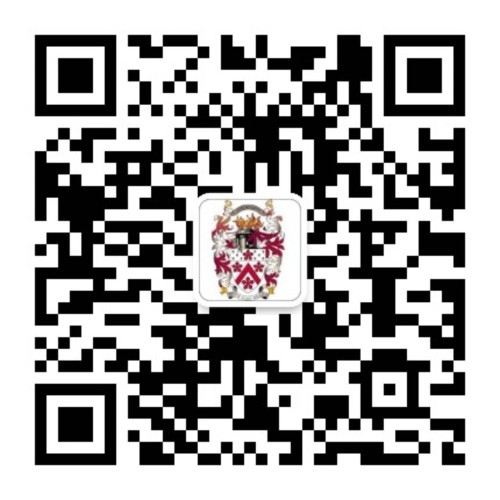A Dulwich Girl’s Cosmic Quest: Winning a Full PhD Scholarship at Harvard
Earlier this year — before her classmate Teresa He celebrated her offer from the Harvard Graduate School of Education — Dulwich International High School Programme Suzhou (DHSZ) Class of 2021 alumna Sissi Chen had already secured a fully funded place on Harvard University’s PhD programme in Astronomy & Astrophysics. After graduating from DHSZ in 2021, Sissi enrolled at Vanderbilt University in the United States, where she completed a demanding triple major in Computer Science, Physics and Mathematics, with a minor in Astronomy, and graduated with highest honours. She will begin her doctoral studies at Harvard in Autumn 2025, continuing her quest to understand the universe.
The Midnight Call She Missed
Sissi was back in China with her family for Spring Festival when the news from Harvard arrived. “Because of the time difference I actually missed the initial late-night call from the Chair of the Admissions Committee,” she laughs. “When I later saw the email I was so excited I didn’t sleep at all!” Given the fierce competition for places in Astronomy PhD programmes — and the added challenge of tighter research funding in the current cycle — Sissi says receiving the offer felt “incredibly fortunate… more like a recognition of many years of hard work.”
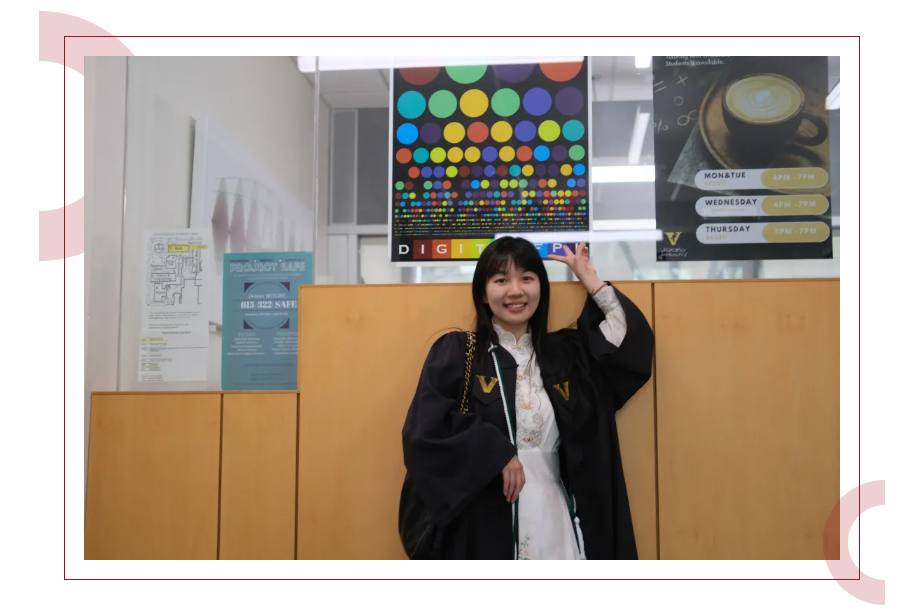
Two Engines: Academic Strength and Global Networks
During her time at Vanderbilt, Sissi did far more than earn top grades. She graduated with Highest Honours and delivered five conference presentations across major international meetings hosted by the American Physical Society (APS), the American Astronomical Society (AAS) and the LIGO Scientific Collaboration. For Sissi, academic excellence and broad academic networking go hand in hand.
At one APS annual meeting she struck up a conversation with a professor from Johns Hopkins University. That informal chat led to a summer research placement in the professor’s lab — and, later, to a powerful letter of recommendation that helped her stand out in a crowded application season. “Talk to people. Present your work. Say yes to conferences,” she advises. “Opportunities often start as a conversation in a hallway.”
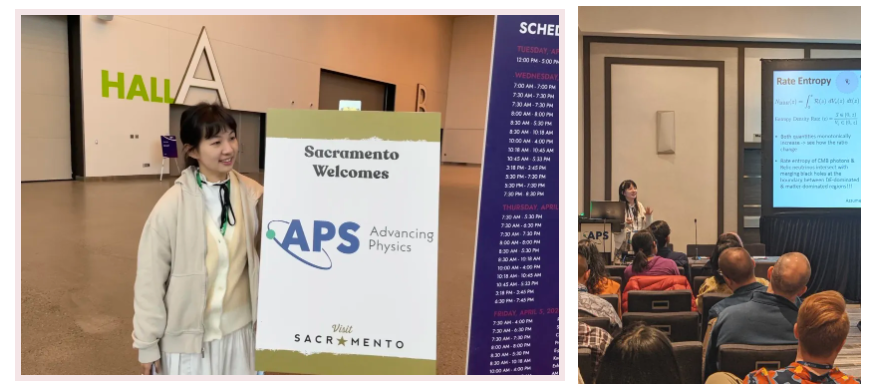
Her doctoral research will build on her undergraduate work on compact objects (black holes and neutron stars) and expand into stellar evolution and observational astrophysics. By combining multiple observational approaches, she hopes to probe how celestial objects form, change and interact across cosmic time.
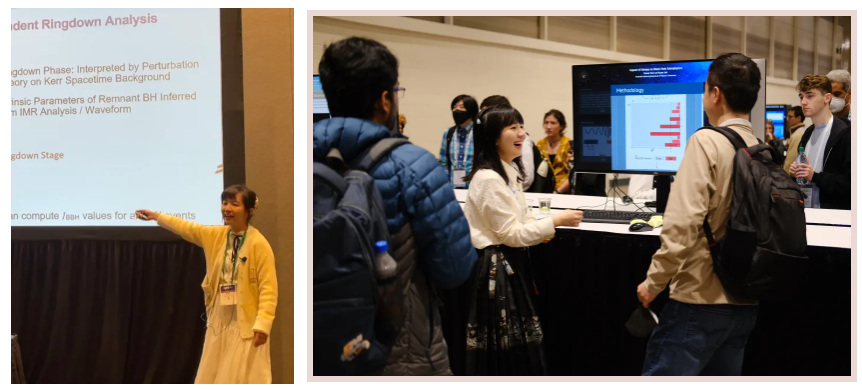
From Microscopes to the Milky Way
Surprisingly, Sissi’s earliest academic passion at school was not physics at all — it was Biology and Chemistry. “I spent a lot of time on iGEM,” she recalls, referring to the international synthetic biology competition. That focus helped earn her an initial offer to study Biomedical Engineering at Vanderbilt.
Yet in her first semester she found herself struggling. “There was so much rote memorisation. I wasn’t enjoying learning that way,” she says. A conversation with the Head of Physics at Vanderbilt prompted her to try out physics modules. The following summer she joined an optical nanoscience lab but realised hands-on bench work wasn’t her long-term fit. She pivoted towards theory and data analysis, and when a newly arrived faculty mentor invited her into a project on gravitational waves and compact objects, everything clicked.
Before long, Sissi became part of the LIGO Scientific Collaboration — the international team whose detection of gravitational waves was recognised with the 2017 Nobel Prize in Physics. “In the world of data and theory I discovered a completely new level of excitement,” she says. “By the end of my first year I formally transferred into Physics.”
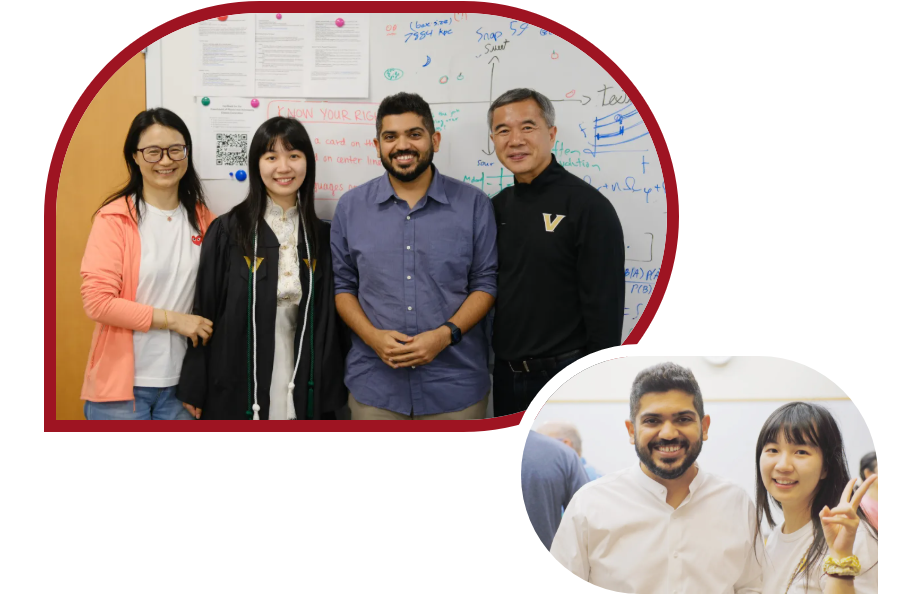
Courage Forged at Dulwich: Learning Chemistry from Scratch
Where did Sissi find the confidence to make such a dramatic academic turn so early in university? She credits Dulwich — specifically, the period when she decided to take A Level Chemistry from virtually zero background in Year 11 because she was then aiming for Biomedical Engineering.
“Every teacher told me it would be too hard — that without any foundation I would struggle,” she remembers. Instead of backing off, she doubled down: questioning teachers before and after lessons, reworking every mistake, and drilling years’ worth of past papers. The result? She leapt from failing marks to top of the year, and received the Chemistry Subject Award.
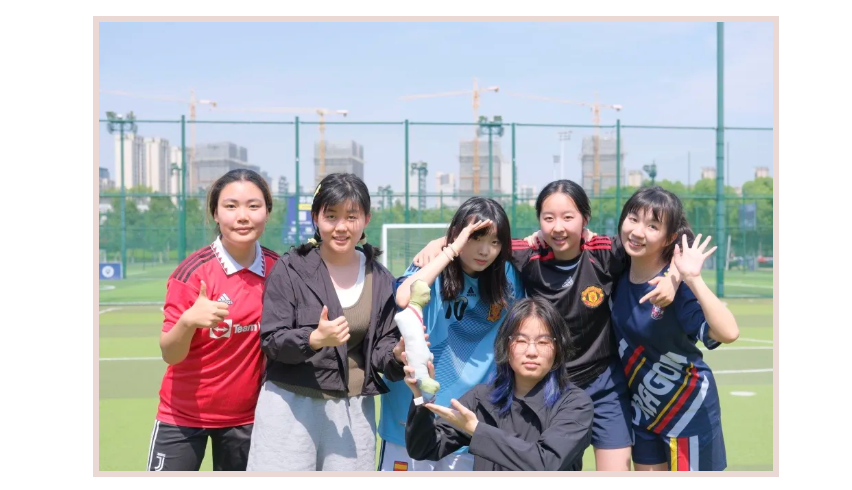
“That experience was transformative,” Sissi reflects. “Once I had overcome the ‘starting from zero’ barrier, I realised that if you commit, there really isn’t a wall you can’t climb.” That same mindset freed her, at university, to set aside Biology and throw herself into the unknown worlds of Physics and Astronomy. “Give something your full attention and genuine curiosity,” she says, “and you can move from ‘I know nothing’ to ‘I’ve got this’ surprisingly quickly.”
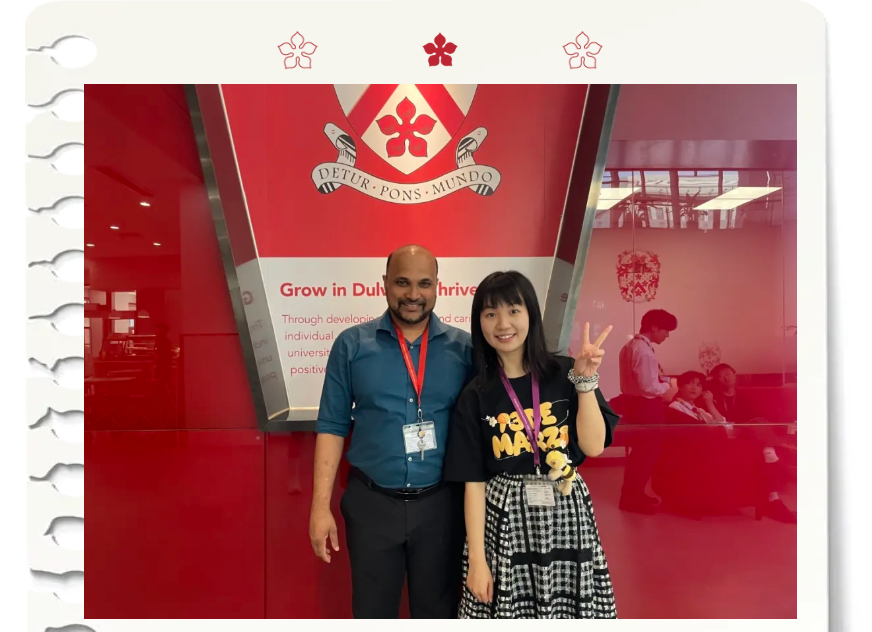
A Teacher Who Saw the Physicist Before She Did
Back in high school, while Sissi was pouring her energy into Chemistry revision, Mr Muralee Kanthiah, her Physics teacher at Dulwich, already spotted her potential in Physics and encouraged her to pursue it at university. “I kept telling him, ‘I’m not good at it,’” Sissi laughs. “He never gave up — he kept asking probing questions and pushing me to think deeper. Looking back, I was so blinkered! His instincts were right.” On hearing about Sissi’s fully funded Harvard offer, Mr Muralee shared in her delight.
Advice From Sissi: Explore Boldly & Seek Opportunities
Not sure which science is ‘yours’? Interested in Biology and Chemistry and Physics? Sissi suggests that students in this position consider studying in the US for undergraduate because of the flexibility to change or add majors and the abundance of research opportunities across four years. “You can try things, make mistakes, and pivot,” she says.
When shortlisting universities, she urges families to look beyond rankings and consider fit and access to resources:
-Smaller private research universities such as Vanderbilt, Emory, Rice and Notre Dame often have lower student-to-faculty ratios and more resources per student.
-In Vanderbilt’s Physics department, for example, fewer than 30 undergraduates meant class sizes under 20, making it easy to join labs — sometimes professors reach out to you.
-By contrast, large public flagships (e.g. UC Berkeley, UCLA, UT Austin) offer superb faculty depth but come with much larger cohorts and more intense competition for lab places.
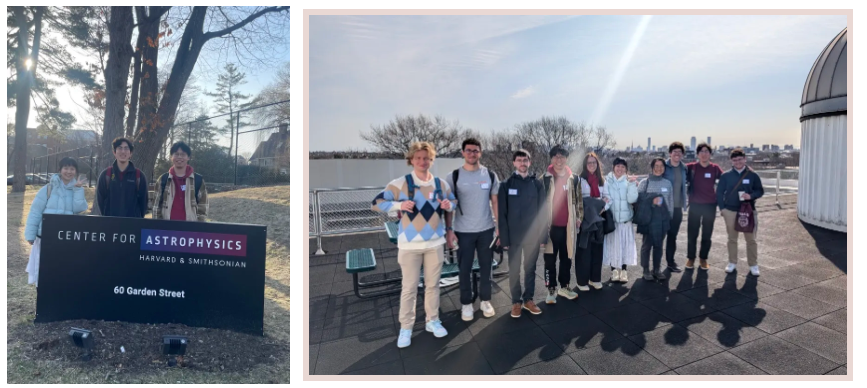
Get into labs early. At meetings of the American Astronomical Society, Sissi met numerous secondary school students who were already shadowing or assisting in research labs. “That hands-on experience can be more meaningful than piling up competition certificates,” she notes. “Professors — in China and overseas — are often very happy to host keen students. Reach out! These experiences help with applications, yes, but more importantly they help you discover what you truly enjoy.”
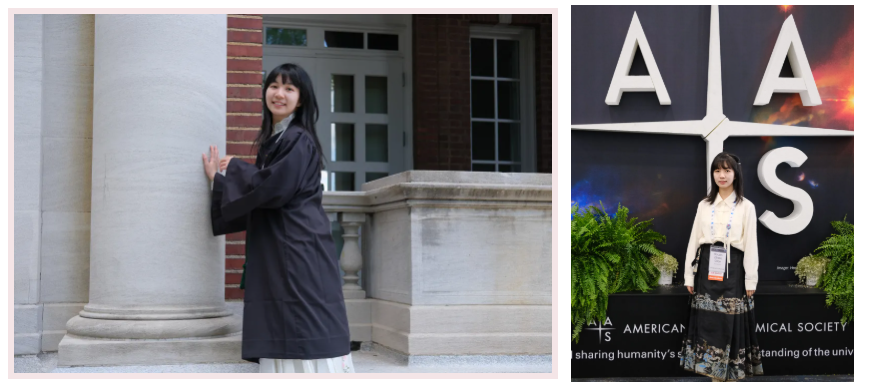
At Harvard, Sissi will continue to explore compact objects and stellar evolution. She plans to bring together gravitational-wave data with electromagnetic observations (from radio to optical and beyond), applying computational physics and large‑scale data analytics to frontier questions in multi‑messenger astronomy — from neutron‑star collisions to supernova explosions. She hopes to use as many observational "messengers" as possible to reconstruct each chapter in the universe's story.
With the courage and resilience forged at Dulwich, Sissi is setting off once again — this time toward the most distant frontiers of astrophysics. May her journey inspire more DHSZ students to start from zero, cross boundaries, and chase the stars.





